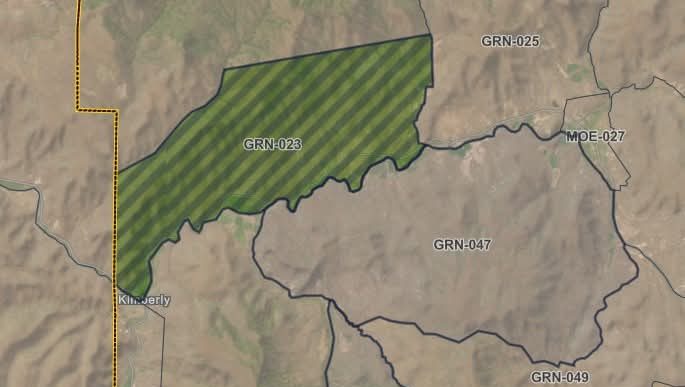West Nile found in Harper area
Published 5:00 pm Monday, June 24, 2013
HARPER Scientists have identified the presence of West Nile virus in mosquitoes from the Harper-Little Valley area of Malheur County.
Trending
The Oregon Health Authority Public Health Division said the discovery the first mosquitoes to test positive for West Nile in 2013 in the state means its time to remind residents to protect themselves this summer. West Nile virus, which usually presents as a flu-like disease, is transmitted by mosquito bites, and can afflict warm blooded animals including humans, horses, chickens, squirrels and dogs.
Although no human cases of the disease have been reported in Oregon this year, 12 human cases were identified in 2012.
The Veterinary Diagnostic Laboratory at Oregon State Universitys College of Veterinary Medicine found the virus last Friday, June 14, in two mosquito pools a sample of about 50 mosquitoes out of five Malheur County pools that were tested.
Trending
Malheur County Health director Stephanie Dockweiler, R.N., B.S.N., said that there is a potential risk of infection, and mosquitoes have been making their presence known thanks to a mild winter and high springtime temperatures.
People can avoid getting mosquito bites by taking appropriate precautions to protect themselves, Dockweiler said.
Mosquito bites might seem inevitable as people head outdoors, but they dont have to be. Emilio DeBess, Oregon Public Health Division veterinarian, offered these precautions:
Eliminate sources of standing water that are a breeding ground for mosquitoes. This includes watering troughs, bird baths, clogged gutters and old tires.
When engaged in outdoor activities at dusk and dawn when mosquitoes are most active, protect yourself by using mosquito repellants containing DEET, oil of lemon eucalyptus or Picardin, and follow the directions on the container.
Wear long-sleeved shirts and long pants in mosquito-infested areas.
Make sure screen doors and windows are in good repair and fit tightly. DeBess recommends protecting animals, too.
Pet owners should contact their veterinarian about topical mosquito repellants. Horse owners should vaccinate their horses for West Nile virus.
About 80 percent of people infected with West Nile virus exhibit no symptoms, and most of the rest have very mild symptoms such as fever, headaches and nausea lasting from three to six days. However, in a few cases, more severe symptoms occur, including convulsions or disorientation. The central nervous system also may be affected, resulting in a headache associated with fever, aseptic meningitis or encephalitis.
Health officials urge residents to contact their doctor if those symptoms arise. Health care providers can contact the Malheur County Health Department for information on West Nile virus testing services offered by the Oregon State Public Health Laboratory.
Additional information about West Nile virus is available on the Oregon Public Health Division website at http://public.health.oregon.gov/DiseasesConditions/DiseasesAZ/WestNileVirus/Pages/survey.aspx, or from the U.S. Centers for Disease Control and Prevention at http://www.cdc.gov/ncidod/dvbid/westnile/ index.htm









